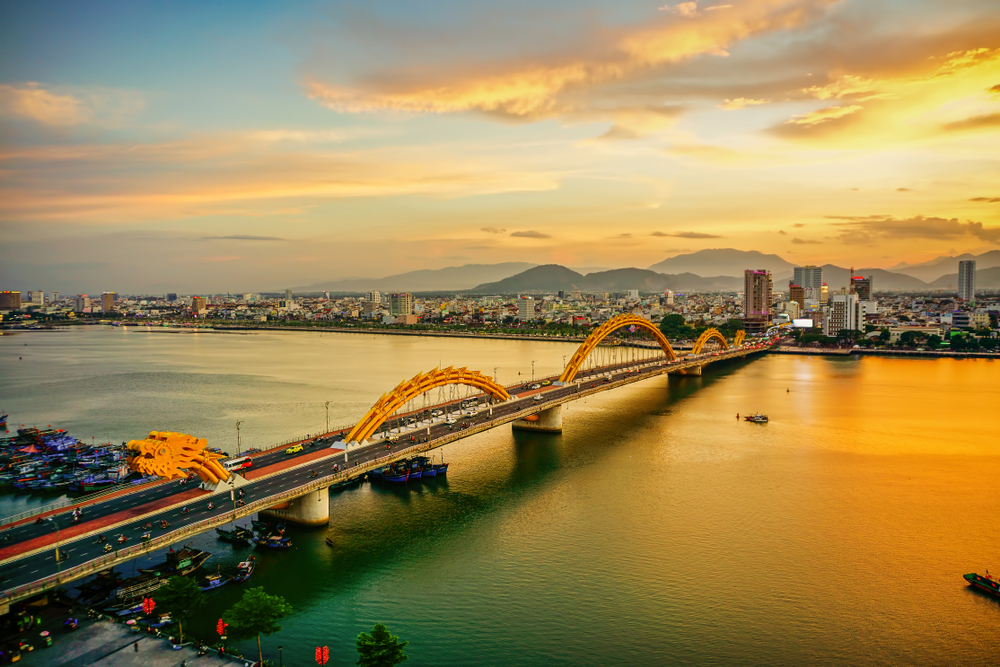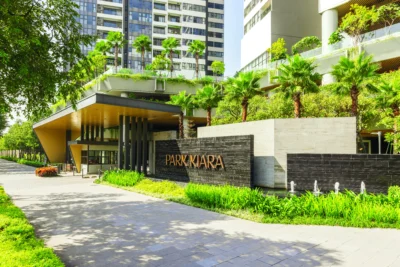The Rising Dragon of real estate: Vietnam steals the spotlight in Asia Pacific
Economic growth and strategic policies propel the country’s real estate market as a prime investor destination in the region

In an era of transformative growth, Vietnam’s real estate market is emerging as a key player in the Asia Pacific region. According to VnExpress International, this burgeoning sector has been ranked the second most preferred emerging real estate market in the region by CBRE’s 2024 Asia-Pacific Investor Intentions Survey, with Vietnam’s potential captivating foreign investors.
Hang Dang, Managing Director at CBRE Vietnam and Member of the PropertyGuru Vietnam Property Awards Judging Panel, offered in-depth insights into this phenomenon. “Vietnam has experienced robust economic growth in recent years, driven by factors such as increasing FDI, a growing middle class, and rising domestic consumption. This economic stability and potential for further growth are incredibly attractive to investors,” she explained.
She also named its favourable demographics, with its young and dynamic population, as among the key factors, offering a large consumer base and a potential labour force.
“Rapid urbanisation and ongoing infrastructure development projects, including transportation networks, industrial parks, and urban areas, create significant investment opportunities in various sectors, such as residential, commercial, and industrial real estate.”
Furthermore, its political stability and investor-friendly policies, as well as its strategic location within the Southeast Asia Region “enhances its connectivity to regional markets and promotes trade and investment opportunities.”
Elaborating on Vietnam’s unique advantages, Dang compared it to other regional markets: “While established markets like Singapore offer stability and mature investment environments, Vietnam distinguishes itself with high growth potential and relatively lower entry costs.”
This optimism is mirrored domestically, as reported by The Star, which notes an anticipated revival of Vietnam’s real estate market in 2024. Following a challenging 2023 marked by a supply shortage and reduced investment demand, the sector is set for a significant turnaround.
The revised Land Law, as highlighted by the Vietnam Law and Legal Forum, further enhances the market’s appeal. This law expands land use rights for overseas Vietnamese, a move that Nguyen Duc Hieu of the National Assembly Economic Committee believes meets the aspirations of the Vietnamese diaspora and mobilizes significant investment resources.
The international acclaim Vietnam’s real estate sector has garnered was evident at the 18th PropertyGuru Asia Property Awards Grand Final 2023, where Vietnamese firms like SonKim Land Corporation, Keppel Vietnam, TBS Land, ParkCity Group, and Gamuda Land claimed major awards.
In tackling challenges and leveraging opportunities, the government is implementing measures to ensure sustainable development and address housing affordability issues. “In recent years, licensing issues have consistently been a major challenge in the real estate market, resulting in a decline in the number of new residential launches. This limited availability of new launches has led to increased selling prices,” noted Dang.
Related: International, homegrown developers win big at the 9th PropertyGuru Vietnam Property Awards
“Notably, Hanoi, following in the footsteps of Ho Chi Minh City, has witnessed a surge in high-end apartment introductions, causing a significant rise in secondary prices. In Ho Chi Minh City, approximately 90 to 100 percent of new launches are in the high-end segment; however, the number of newly launched units is at its lowest point in the past decade.
To address these challenges, the government has implemented various measures to support the real estate market. These measures include programmes aimed at providing support for affordable housing and the passing of revisions to land laws, real estate business laws, and housing laws. These revised laws, set to take effect in 2024, aim to resolve existing licensing issues and foster a more sustainable development environment for Vietnam.”
Moreover, she said that the interest rates have been declining in line with improving economic conditions. “Developers are now offering more extended payment terms, with some projects accepting only 30 percent payment upon handover, to support market demand. The establishment of new infrastructures has also played a role in stimulating demand for developments in emerging areas and accelerating the decentralisation trend in the two densely populated cities, Hanoi and Ho Chi Minh City.”
All in all, Vietnam’s real estate market is experiencing a dynamic phase of growth and transformation. With its strategic advantages, proactive government policies, and increasing international interest, the country is positioning itself as a formidable force in the Asia Pacific real estate landscape.
Know any award-worthy residential, commercial, or industrial projects in the country? Nominate them for the 10th annual PropertyGuru Vietnam Property Awards on or before 23 August 2024. To know more, visit AsiaPropertyAwards.com/Award/Vietnam/.
Gynen Kyra Toriano, Digital Content Manager at PropertyGuru, wrote this article. For more information, email: [email protected].
Recommended
Park Kiara in Hanoi raises the bar for sustainable urban living
Park Kiara in Hanoi is a repudiation of low-density, car-dependent suburban sprawl
6 reasons Bekasi is rising as Greater Jakarta’s next hotspot
One of Greater Jakarta’s rising stars is prospering, thanks to ample recreation and a contingent of desirable housing projects
6 developments driving Asia’s green real estate shift
Developers are being incentivised to push a green agenda into daring new realms
The Philippines’ LIMA Estate drives sustainable industrial growth
LIMA Estate models a citywide vision that uplifts workers while appealing to climate-conscious employers






